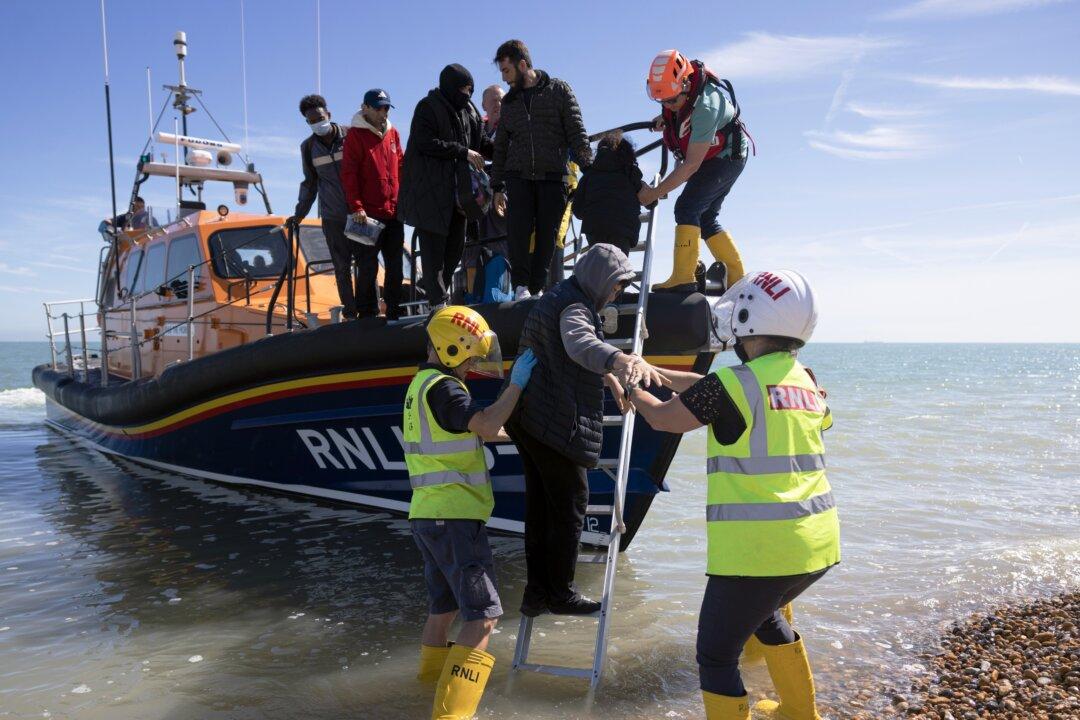Thousands of illegal migrants will be stuck in limbo and in need of accommodation by a government-created “perma-backlog” under current small boat busting plans, a think tank has warned.
The Institute for Public Policy Research (IPPR) said that even if the Rwanda deal to remove those arriving in the UK illegally is ruled lawful, deportations are likely to be on a small scale—meaning arrivals will continue to outpace removals.





